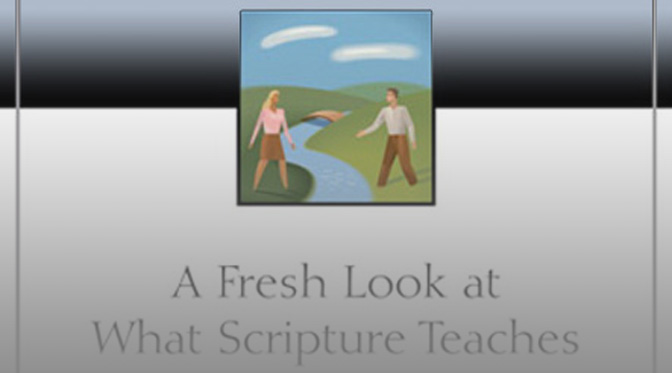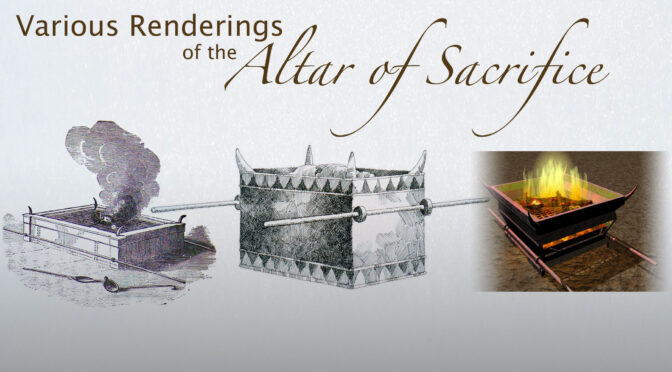I support Kim Davis 100%. Below is a video that proposes to teach how to “silence” me (and the title calls me an idiot, to boot, which is an ad hominem argument). First, watch the clip, then read my reply.
Warning: Some crude language.
https://www.youtube.com/watch?v=VU_8q9MGXeg&rel=0
Well, I’m a Kim Davis supporter, and it does not silence me. The clip is woefully wrong on so many levels. Let’s name just a few:
- One need not agree with, endorse, or even understand someone else’s religious belief in order to afford them accommodation for conscience sake.
- The clip’s implied notion of “it is wrong to live by part of the Bible if we don’t keep all of it” is a clever deception. There are multiple covenants in the Bible. The previous ones are often lumped together in a singular phrase: “Old Covenant.” Christians are enjoined to the “New Covenant.” If someone has not agreed to a certain covenant, then we don’t hold them accountable to its precepts. The fictional characters here act as though all the world are signatories to the Mt. Sinai Covenant (also known as the Mosaic Covenant). Christians don’t demand of unbelievers an obedience to our own covenant, let alone obedience to one we don’t even belong to. If you don’t want to take part in a certain covenant, then, yes, you can ignore its precepts, but you also won’t get its rewards, either. Remember that last part when the Day of Judgment arrives.
- It is nearly-universal Christian teaching that the Mosaic Covenant’s ceremonial codes and judicial penalties are not binding on non-Jews, i.e. those who are not part of that covenant (although the Old Testament has some broadly-applicable, explicit commands and some clear, timeless moral judgments of God, and all its content, however minor, harbors principles worthy of study). While we are on this, if we cannot believe in the Bible unless we live by all its covenants, then liberals cannot invoke the Supreme Court in Obergefell unless they also abide by all SCOTUS rulings, such as that black people are not persons, etc, and liberals cannot invoke “rule of law” over Kim Davis, while they ignore all the laws on the books protecting natural marriage (as done, for instance, by President Obama and many states’ attorneys general).
- The Bible’s overall message regarding sexuality has moral aspects that are clear in both the Old and New Testaments. One need not be a Jewish “Old Covenant” believer to know homosexuality is sexual sin; the “New Covenant” believer gets this knowledge from the New Testament as well. Furthermore, the Old Testament’s descriptions of what behaviors constitute the sexual sins, which all fall under a blanket term (fornication) are binding upon non-Jewish believers, as this matter falls within a limited set of Old Testament requirements declared binding on Gentile believers (see Acts 15).
- The TV script writer foolishly presumes that all transgressions are equal in nature, i.e. “all sins are equally severe; there is no big sin and no little sin,” which is blatantly false. Our Western judicial system is based in a significant way on the Mosaic Law’s “Lex Talionis” — the principle or law of retaliation, that “the punishment should fit the crime” (i.e. a penalty inflicted should correspond in degree and kind to the offense of the wrongdoer). This is based on a bedrock truth that not all sins are equal. The TV script writer betrays both their faulty view of “equality of all sins” and their glaring ignorance of the Bible by inserting into the script two falsehoods—that mixing crops/seeds and mixing thread types in clothes were both to be worthy of death under the Mosaic Law (the Bible nowhere called for such a penalty)—and implying that all minor infractions against the Mosaic Law are equal to, and as severe as, homosexuality, which is a concept that is indisputably not biblical.
- Bible passages that regulate/restrict bad behavior, including slavery, rape, polygamy, and wrongful divorce, etc, are not endorsements of said behavior, and the overall message of the Bible has always led true believers away from such behavior.
- Finally, the TV clip “creates” the very bigotry it seeks to rebuke, in two ways: by fictitiously and intentionally portraying a callous, arrogant Christian it creates a false preconception of Christians, and in modeling a horrendous, flawed “how to silence the Christians” approach, it teaches anti-Christian bigotry to biblically illiterate unbelievers who “buy the lie” hook, line, and sinker. That fosters hatred toward believers and ensconces ignorance and bigotry as noble attributes.













